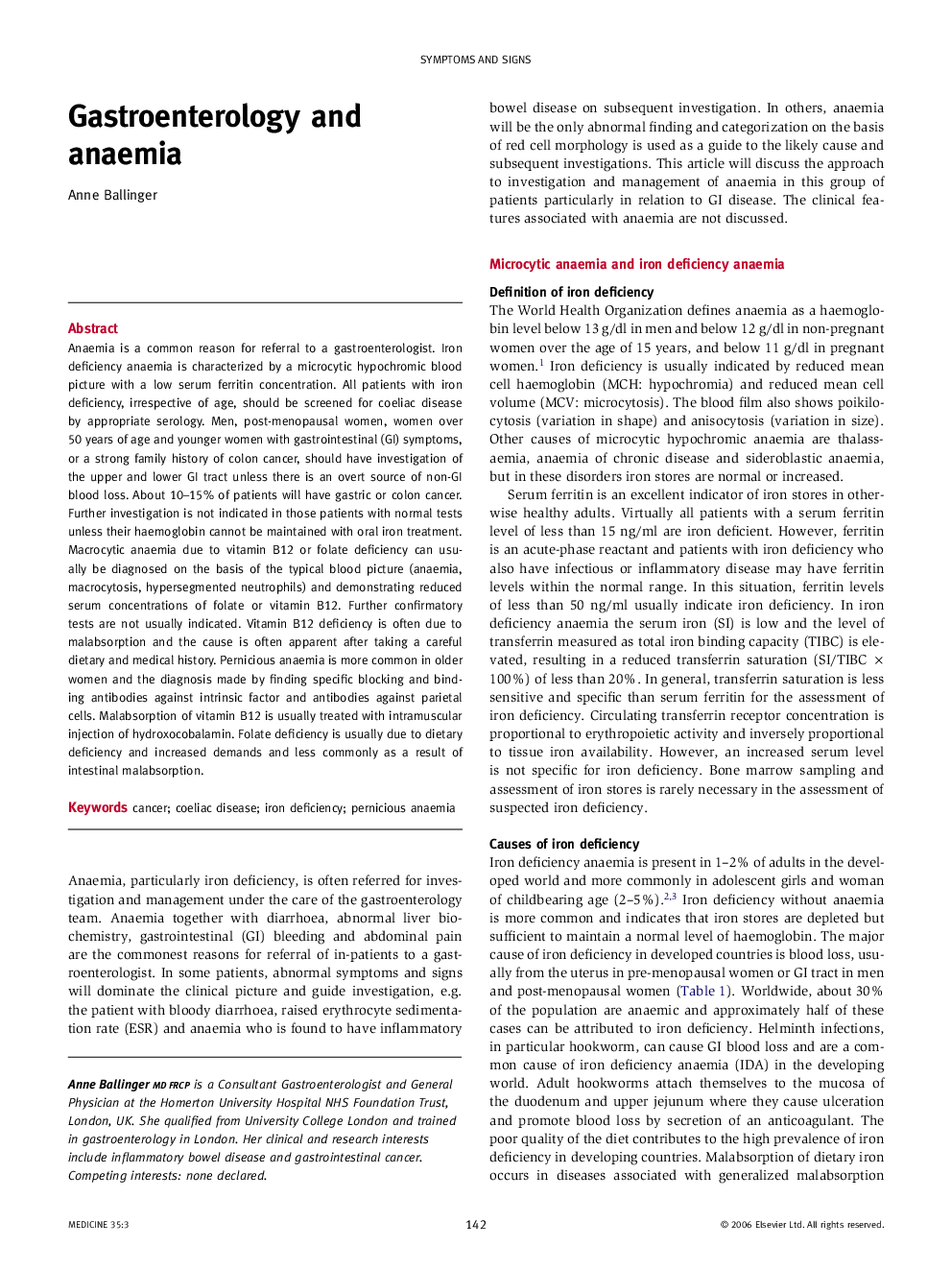| Article ID | Journal | Published Year | Pages | File Type |
|---|---|---|---|---|
| 3808051 | Medicine | 2007 | 5 Pages |
Anaemia is a common reason for referral to a gastroenterologist. Iron deficiency anaemia is characterized by a microcytic hypochromic blood picture with a low serum ferritin concentration. All patients with iron deficiency, irrespective of age, should be screened for coeliac disease by appropriate serology. Men, post-menopausal women, women over 50 years of age and younger women with gastrointestinal (GI) symptoms, or a strong family history of colon cancer, should have investigation of the upper and lower GI tract unless there is an overt source of non-GI blood loss. About 10–15% of patients will have gastric or colon cancer. Further investigation is not indicated in those patients with normal tests unless their haemoglobin cannot be maintained with oral iron treatment. Macrocytic anaemia due to vitamin B12 or folate deficiency can usually be diagnosed on the basis of the typical blood picture (anaemia, macrocytosis, hypersegmented neutrophils) and demonstrating reduced serum concentrations of folate or vitamin B12. Further confirmatory tests are not usually indicated. Vitamin B12 deficiency is often due to malabsorption and the cause is often apparent after taking a careful dietary and medical history. Pernicious anaemia is more common in older women and the diagnosis made by finding specific blocking and binding antibodies against intrinsic factor and antibodies against parietal cells. Malabsorption of vitamin B12 is usually treated with intramuscular injection of hydroxocobalamin. Folate deficiency is usually due to dietary deficiency and increased demands and less commonly as a result of intestinal malabsorption.
